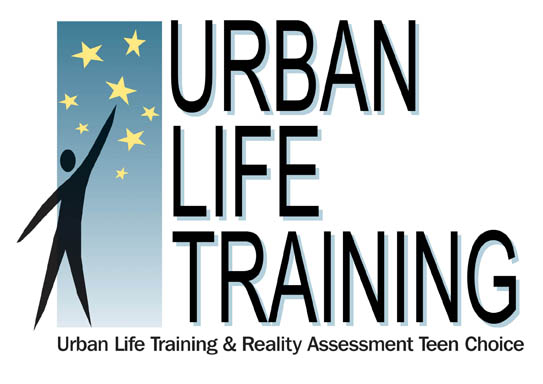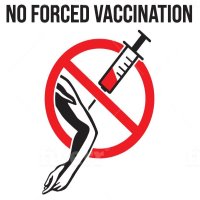GOVERNMENT OF THE DISTRICT OF COLUMBIA
Department of Health
|
Information about Human Papillomavirus and Vaccination and Vaccine Refusal Form for Students at District of Columbia Public, Charter, Private and Parochial Schools Instructions for completing HPV Vaccine Refusal Certificate Section 1: Enter student information Section 2: Have parent/guardian or student (if > 18 years of age) initial, sign and date after reading Vaccine Information Statement (s) |
|||
|
Name of School |
|||
|
Section 1: Student Information |
|||
|
Student Name: |
Date of Birth: |
Grade: |
|
|
Street Address: |
City: |
Zip Code: |
Phone: |
|
Name and Address of Healthcare Provider: |
City: |
Zip Code: |
Phone: |
Recent legislation passed in 2007 by the District of Columbia City Council (DC Bill 17- 30) requires all female students, enrolling in grade 6 for the first time at a school in the District of Columbia, to submit certification the student has:
1. Received the Human Papillomavirus (HPV) vaccine; or
2. Not received the HPV vaccine because:
a. The parent or guardian has objected in good faith and in writing to the chief official of the school that the vaccination would violate his or her religious beliefs;
b. The student’s physician, his or her representative or the public health authorities has provided the school written certification that the vaccination is medically inadvisable; or
c. The parent or legal guardian, in his or her discretion, has elected to opt out of the HPV vaccination program by signing a declaration that the parent or legal guardian has been informed of the HPV vaccination requirement and has elected not to participate.
________________________________________________________________________
Human Papillomavirus (HPV) Vaccine Refusal
I have received and reviewed the information provided on the human papillomavirus and the benefits of the HPV vaccine in preventing cervical cancer and genital warts if it is given to preteen girls. After being informed of the risk of contracting HPV and the link between HPV and cervical cancer, I have decided to not to receive the HPV vaccine for the above named student. I know that I may re-address this issue at any time and complete the required vaccinations.
______________________________________________________ ____________________________
Signature of Parent/Guardian or Student if >18 years Date
_______________________________________________________
Print Name of Parent/Guardian or Student if >18 years
HUMAN PAPILLOMAVIRUS INFORMATION
Genital human papillomavirus (HPV) is the most common sexually transmitted virus in the United States. There are about 100 types of HPV. Most infections don’t cause any symptoms and go away on their own. HPV is important mainly because it can cause cervical cancer in women and several less common types of cancer in both men and women. It can also cause genital warts and warts of the upper respiratory tract. There is no treatment for HPV, but the conditions it causes can be treated.
About 20 million people in the U.S. are infected, and about 6.2 million more get infected each year. HPV is spread through sexual contact. More than 50% of sexually active men and women are infected with HPV at some time in their lives. Every year in the U.S., about 10,000 women get cervical cancer and 3,700 die from it with rates of cervical cancer in DC being higher than national averages.
HPV vaccine is an inactivated vaccine (not live) which protects against 4 major types of HPV. These include 2 types that cause about 70% of cervical cancer and 2 types that cause about 90% of genital warts. HPV vaccine can prevent most genital warts and most cases of cervical cancer.
Protection is expected to be long-lasting. But vaccinated women still need cervical cancer screening because the vaccine does not protect against all HPV types that cause cervical cancer.
HPV vaccine is routinely recommended for girls 11-12 years. Doctors may give it to girls as young as 9 years. It is important for girls to get HPV vaccine before their first sexual contact-because they have not been exposed to HPV. For these girls, the vaccine can prevent almost 100% of disease caused by the 4 types of HPV targeted by the vaccine. However, if a girl or woman is already infected with a type of HPV, the vaccine will not prevent disease from that type. It is still recommended that girls or women with HPV get vaccinated.
The vaccine is also recommended for girls and women 13-26 years of age who did not receive it when they were younger. It may be given with any other vaccines needed.
HPV vaccine is given as a 3-dose series:
? 1st Dose: Now
? 2nd Dose: 2 months after Dose 1
? 3rd Dose: 6 months after Dose 1
People who have had a life-threatening allergic reaction to yeast, are pregnant, moderate to severe illness should not receive the vaccine. Side effects are mostly mild, including itching, pain, redness at the injection site and a mild to moderate fever.
If additional information is needed, please contact your healthcare provider, the D.C. Department of Health Immunization Program at (202) 576-9342 or the Centers for Disease Control and Prevention (CDC) at 1-800-CDC-INFO (1-800-232-4636).



